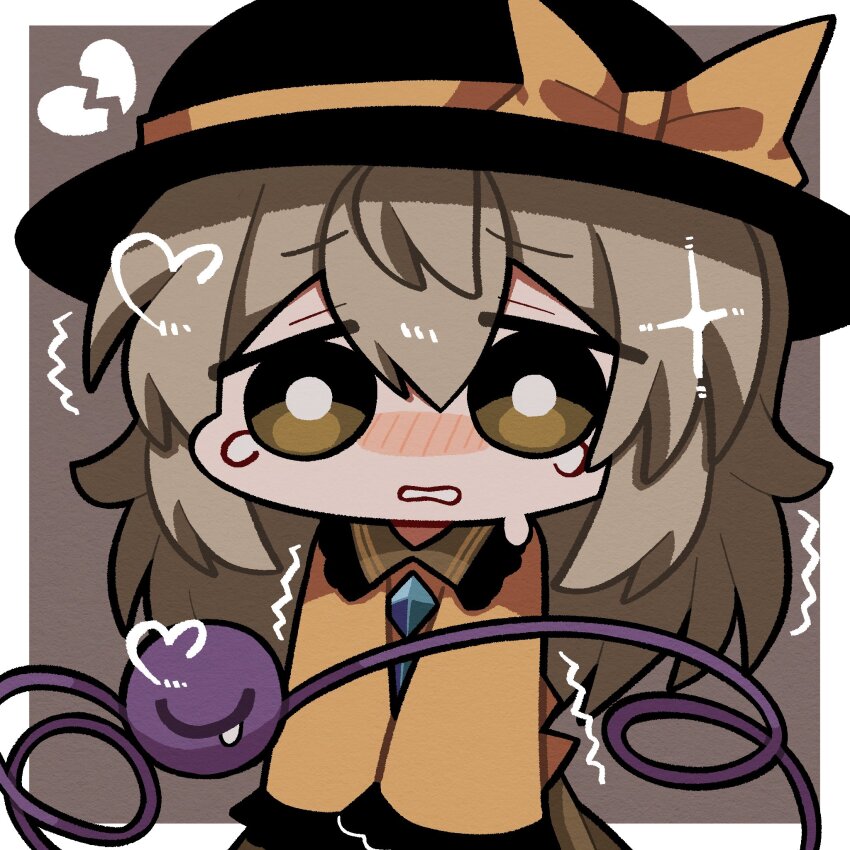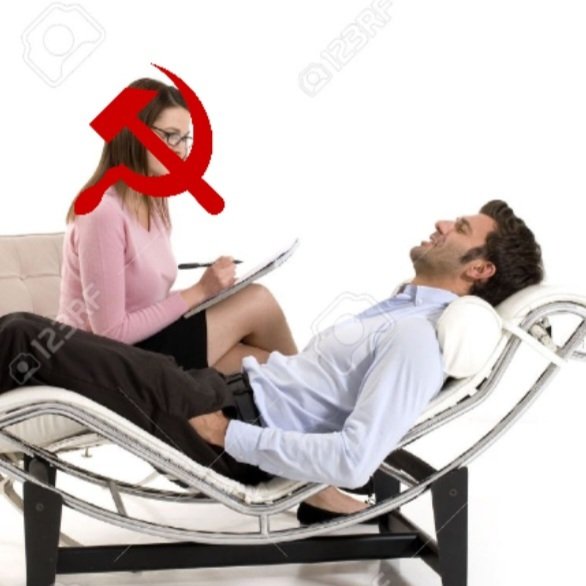hello! this is the first communist theory thing I actually managed to finish and fully understand, I’m gonna move on to other recommendations next, but I did get quite a lot of doubts that I noted in a little text file. none of them are gotchas just things I genuinely wonder about/don’t understand
i apologize in advance if these are common annoying questions, feel free to point me to other resources that answer these things if it’s too much  you also don’t have to answer everything
you also don’t have to answer everything
here’s the text in case it’s useful!! https://www.marxists.org/archive/marx/works/1847/11/prin-com.htm
Section 18
If competition is erradicated when every line of production is controlled by the state as Engels is proposing, will that mean an end of variety in consumer choice? I have indeed heard stories that people in socialist countries “only have one or two brands of X”, I’m not sure to what extent that is true but it seems like the natural conclusion from doing this…
Do you think this is better for an average person? main things that scare me are that, much like with companies in a market, how could we ensure the state produces things that benefit us and not benefit itself instead? this is what worries me about only having a single national bank too. Ideally if we only have one choice we have to make sure it’s the right one, no?
How would niche things, that benefit some part of the population but not everyone, be produced? Things like… fumo plushies, board games, or to put a less banal example, something that helps a condition that is uncommon and doesn’t spread but still exists, like special shoes to help some kinds of foot deformation for example…
thing is in a market system, niche things can make just as much or even sometimes more money than stuff that is produced “to be useful for everyone”, so they almost always appear in some way. but if all the production is controlled by the state, with very grand goals in mind, wouldn’t it not benefit them in any tangible way to invest in these kinds of things?
also, what would inspire innovation if it’s not competition? couldn’t the state just be satisfied with the results something is giving and not be interested in giving it resources to improve?
Section 19
I’m curious what communists think about this with a modern lens? AFAIK a revolution in a single country did happen right? And in Russia so none of the places Engels proposed. It didn’t really spread from there.
Section 20
do marxists think only economic class exists? wouldn’t there still be political classes? here it says that classes would end up disappearing because they only form due to division of labour. But isn’t there even in a fully realized socialist state a division of labour? even if everything is nationalized, isn’t there still a difference in power between, like, a furniture factory worker and the bureaucrat that oversees the state’s furniture building company? even if that bureaucrat is not monetarily richer than the worker per se.
also, it predicts here that education will give people the opportunity to understand the entire production system and thus jump from producing one thing to another, but since this book has written education has become a lot more universal, and that’s not what really happened right? people still chose one thing to specialize on and do it all their lives (or they study something that doesn’t have work opportunities and work something else). is there a difference in how marxists want education to work?
Section 24
I have one doubt about what Engels says about democratic socialists, mainly that small capitalists (“petty bourgeoisie”) in general tend to have the same interests as the proletariat.
i think one of the things that has put me off about revolutionary communism is precisely the attitude towards small capitalists, to be honest my parents are part of them, and I’ve always struggled to see them as a big evil the same way I view corporate giants, mainly because it’s just obvious their aims are not the same
I think the exploitation Engels is talking about where the workers always get the bare minimum that can be afforded happens mainly in big companies, especially the ones that have investors and seek infinite growth, but small companies like my parents’s basically just want to get by and survive, they only want to maintain themselves at an earning level that can support my family and the families of everyone who works there, if they can’t pay the wages with the weekly earnings they take out of their own savings to do it
in my parent’s case they are over 70 so they couldn’t really be part of the factory work either way, and I think what they do is still valuable (managing things, attending calls, organizing production and planning, supervising the design of new ideas, solving disputes, marketing, training new employees, etc…)
will these kinds of companies be treated any differently?
thanks a lot for reading, in advance!


I agree that they still participate in an unfair system
I just think they still do the best they can within it and don’t deserve to be like… hanged for it, the same way I think about really huge capitalists, who still exploit my parents nonetheless, I really don’t think they belong to the same class, because they don’t have the same interests
Nah, nobody wants to kill the petty burshwá, sadly they tend to rabidly defend the unfair system that benefits them, and that’s where the conflicts start. Proletarians ask for workers rights and they immediately vote for fascism.
Hell, most petty burshwá would have a better life under a planned economy instead of this where you can get charged all your savings and more for a cheap-yet-life-saving medical procedure.
But nobody has “kill bakeries owners” in a to do list to achieve communism.
funnily enough my mother says a lot of very socialist things, she’s even made the exploitation point you’ve made, just in an agrarian context… the problem is that she’s very deep into a crapton of silly conspiracy theories, and conspiracy theory circles are absurdly right wing… so she’s a weird mix
Kjj, same
Feel that, it is common in families.
I think there is a material base to why the conspiracies are docking, it justifies her privilege and lets her be at the same time feel as victim of powerful forces from above and below and justifies violence and force (such as exploitation) to keep what is rightfully hers. A part is the insecurity that our system creates.
Another part I think is the excellent propaganda that is possible nowadays, that is targeted at individuals and they do not live in reality, but constructed spaces in which alternate realities are created and alternate communities founded. With the lack of good social relations in which they feel accepted and secure (outside of hierarchies) they tend in my opinion to seek para social relations with that and take over the vibe and don’t want that to be attacked, which is why they aren’t open for facts or other emotional connections sometimes. Besides that they don’t have or take the time and also lack the position to actually see what their position means for the system and align themselves more with capitalists against those that want more.
With undoing their economic power on one hand and at the other hand securing their life and good quality of life for their children they might actually feel much better (or at least their children/children children will). I for sure know that plenty of close and close-ish family of mine would be better off under socialism as the threat of starvation, losing health insurance or not having a pension, or not having social clubs would be done away with.
actually I saw this sort of happen in real time. my country made the vaccine mandatory and my mother was vehemently anti vax so we spent basically two years locked up in our homes only able to go outside buy food and nothing else. of course in such isolation, with such loneliness, that only anti vax people were experimenting, the only place she could vent it to were anti vax circles, that just made her even more radical
indeed I’ve mostly given up in trying to change any of what she thinks, because I really don’t think it’s only that she logically believes it is happening, but also the extreme emotional investment she’s had in these theories for years, so anything that challenges them makes her extremely defensive. I can mostly only try to make sure she doesn’t get into new ones… but it’s not easy ; ;
diving into materialism a little though has made me extremely skeptic of almost all conspiracy theories, because if you think through them, no one stands to benefit in absolutely any way. No one gains anything with “locked out 15 minute cities”, no one gains anything by “spraying hard metals in the atmosphere with chemtrails”, no one gains anything by “replacing the white race”. the real conspiracies aren’t really conspiracies because they’re just obvious or people straight up admit them, like CIA meddling that you can just see in declassified papers… stuff like that
Yeah I agree wholehearted with what you wrote and can relate to what you write about your family on this point as well.
no one wants to hang your parents, we all just want their employees to have the same opportunities they currently get by taking their surplus labor value.
yeah I understand that now!
Contrary to popular belief, historical communists have not tended to kill people simply for class status or for power grabs alone. Say for example that a propagandized person believes that communists will set a threshold for income or for net worth and just kill everyone above that threshold. That’s a belief that’s not regularly stated, but is implicit in a lot of anti-communist jokes and the colloquial understanding, yeah? Take that person and tell them about the killing of kulaks. They’ll think that the killings were wrong because the communists simply set the threshold for wealth ridiculously low. It feeds into the whole “the problem with communism is that you eventually run out of other people’s money” bit.
The reality was that the kulaks were not targeted for wealth or class status. Their class status incentivized them to act like pieces of shit and falsify their harvest reports and to hoard grain and to burn their fields. They starved people. Given the choice between giving up some of their wealth, gained through exploitation, or helping their fellow humans, they decided they would rather starve people to death. And that was that.
That’s not to say that no mistakes were made at any given stage here on the part of the communists. The history of communist movements is rife with mistakes. This is why we read theory and learn our history, so mistakes are learned from.
I’d also point out that many landlords are old folks just trying to get by who only own one rental property and don’t take much money off the top. Some landlords are even very kind and keep their rent low and do their repairs promptly and are always easy on people for being late. The existence of these people does not negate the fact that the institutions of landlordship or of financialized housing are good. They create perverse incentives whether some folks manage to ignore them or not.
TLDR is that petit bourgeois class traitors exist and are good, people are complicated, and none of us wanna hang your mom
yeah ultimately it comes down to this, as long as we make exceptions for these kinds of cases I’m on board I’d say!